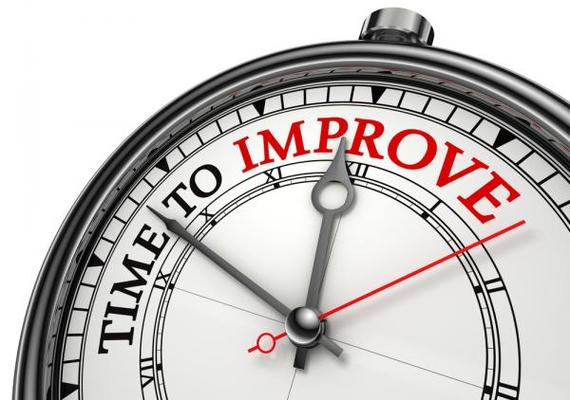In my last post, The 4 Success Indicators for 21st Century Accountability, we discussed the possible death of high stakes testing. But there was also a call to action to find an appropriate way to hold a school district accountable for the success of their students.
We stated that possible new criteria might include:
1. Our students graduate from high school with future goals in mind.
2. Our students have some destination after high school. That could be a college, trade school, military training or job. We want them to have and be confident in their ability to fulfill a plan for their immediate future.
3. Our students become contributing members of society.
4. Our students embrace a mindset of service to others.
These criteria do not discount the importance of learning per se, but rather imply that true success goes beyond the test data. True success stretches into our students' futures. These criteria are what propels a school district from good to great. Our students are the focus of accountability and not the test data.
Consider this, the accountability for a successful school system has to reach all the way down to kindergarten. Preparation for our students' success must begin in kindergarten. Our young people need to have goals and dreams. Planning for your future can start at a very early age and can also be fluid.
Michele Borba, internationally recognized educator and speaker, has stated that "goal-setting is one of the most highly correlated traits of peak performers and successful individuals". As our students accomplish their goals, they develop a sense of discipline that carries into adulthood. Research confirms that students from lower socio-economic families need to develop a mindset of hope, determination and confidence. These attributes develop as one works toward and achieves goals. Developing appropriate goal setting strategies at a young age and continuing on this trajectory will result in our students making appropriate plans for the future---our second criterion.
For the record, we are not necessarily talking about career planning, but rather we are talking about an attitude toward career planning. As our students begin to gain confidence in their ability to meet goals, they will also begin to see themselves as being productive in the future, whether that productivity begins in college or trade school or any other post-high school development, it is imperative that students can visualize themselves as successful.
Having goals and future plans will most certainly lay the groundwork to criterion three: Our students will be contributing members of society. I define a contributing member of society as someone who is self-sustaining and law abiding. A successful school district would collect data on their students for 5 years following graduation to track the kinds of jobs, post-education and/or military pathways in which the students are enrolled. These data would help us to develop curriculum.
So far we have been discussing educating the minds of our students and developing their self-esteem and confidence, but lastly we want to delve into the hearts of our students. We want our students to leave our elementary, middle and high schools with a mindset for service to others.
Athlete, Arthur Ashe has stated, "From what we get, we can make a living; what we give, however, makes a life." There is no criteria as important as this for our students of tomorrow. Our world is crying for those who will give to others and consider what is good for the whole before oneself. This can only be achieved by starting early and developing confident, self-sustaining, educated adults.
What might an accountability program look like for these abstract concepts? Children would be given interest inventories throughout their educational careers and track changes in their attitudes. Students would be involved in programs like "Kids for Kindness and other service programs. Teachers will make the necessary correlations for students to determine what skills they will need to fulfill their goals and dreams. Students need to experience the curriculum relevant to their needs. Middle and high school students need to be involved in both apprentice projects that embrace their future goals and service projects that embrace their individual philosophies.
Now I am sure all the nay-sayers will find many, many reasons why this simply would not work. I will assume they are people that are afraid of change and prefer complacency. We want our students to be successful when they leave the school system. There is really nothing else that matters:
No grade point average or test.
No letter grade in a course.
No position on the sports team or popularity in their group.
None of that matters if they do not end up being contributing members of our society with positive, attainable future goals. Let's make that the goal for which education is held accountable.
"Every individual matters. Every individual has a role to play. Every individual makes a difference. And we have a choice: What sort of difference do we want to make?" Jane Goodall

